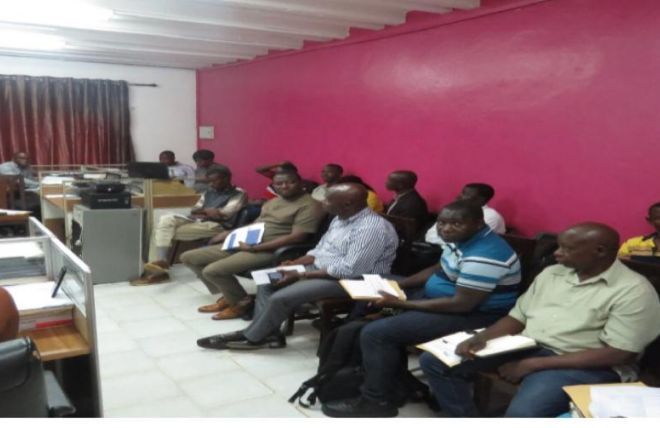The Petroleum Regulatory Agency (PRA) was principally enacted by Act of Parliament in 2014, with the Statutory Instrument of 2016 to regulate the downstream petroleum sector which includes refining, storage, importation, bunkering, transportation, distribution, retailing, etc of operators and also work with relevant stakeholders to determine affordable and efficient pump prices across the country.
The Agency is one of the most efficient and service-deliverable agencies under the current dispensation. The Petroleum Regulatory Agency (PRA) has exponentially increased petroleum revenues for the government. In 2018, Le, 473.46bn and in 2022, Le, 767.14bn was generated, representing a 62% increase. This happened as a result of his proactive and smart regulation. There are administrative measures that are currently being put in place despite the seeming geopolitical tension that is continuously posing huge threats to the sector.
The downstream petroleum sector has exceptionally been transformed into a fascinating and enviable institution with huge reforms being instituted by the astute and result-oriented Executive Chairman, Baluwa Koroma for his indelible legacies that will transform the industry to match the status of international standards.
The current Executive Chairman has phenomenally improved on the facelift of PRA. His administrative acumen is very much top-notch and has led him to have regional offices nationwide with committed and dedicated District Monitoring Officers (DMOs) in every district that monitor and supervise efficiency and service delivery in the regions.
Petroleum Regulatory Agency has attracted huge private investors' participation in the sector in recent times, especially in the area of importation and the establishment of gas stations across the country. Thus, it will help free up the market with enabling environments so that remote places will not be challenged any longer in securing petroleum products for their domestic usage.
Mr Baluwa Koroma inherited the Agency with 219 gas stations operating within the country.
Today, the industry can proudly boast of having over 410 gas stations nationwide which will help to mitigate some of the bottlenecks in the downstream petroleum sector and also reduce energy poverty in the country as more people have access to petroleum products.
The government, through the agency, is profoundly putting modalities in place in order to ensure that the government participates in the downstream petroleum sector, which will change the narrative and for efficient and effective service delivery in the sector.
Before this time, the agency used to rely on third parties to determine local pump prices (Platts). As a vibrant and productive agency, PRA lobbied with the government profoundly to have its own PLATTS. As of today, PRA is the only direct subscriber of PLATTS for petroleum products in Sierra Leone. The Agency monitors Platts prices on a daily basis.
The Agency is primarily saddled with the mandates to license, regulate, refine, store, transport, and distribute petroleum products in a timely manner.
However, it does not import petroleum products as has always been viewed by the public.
To put a robust stop forthwith to fuel hoarding which normally creates panic and artificial scarcity in the market, PRA now undertakes daily dipping for ullage for all petroleum terminals to ensure adequate stock and effective distribution across the country.
The Agency had sanctioned dealers with heavy fines and cancellation of licenses for hoarding, which created artificial scarcity.
For Compliance and Standards, the Executive Chairman deemed it prudent to establish an Engineering Department that will guide private investors with the technical specifications and requirements for operating a gas station. Therefore, no sooner, PRA is contacted for the establishment of a gas station with a letter of intent. The Engineering Department visits the site and proffers professional and technical advice before the construction of the gas station. These are all innovative ways to ensure compliance that meets the standard of international best practices.

